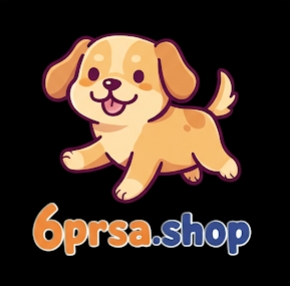Choosing the right dry dog food for your Goldendoodle can feel overwhelming. This article simplifies the process by cutting through the marketing noise and focusing on what actually matters for your Doodle’s health and well-being. We’ll explore key nutritional needs, address common Goldendoodle health concerns like allergies and joint issues, and provide practical advice on selecting the perfect food. This article solves 3 problems: (1) it identifies the core nutritional needs of Goldendoodles, (2) it provides actionable steps for choosing the right food based on your dog’s individual needs, and (3) it offers insights beyond the label to ensure your Doodle thrives.
Goldendoodles, with their mix of Golden Retriever and Poodle genetics, are active and intelligent dogs with specific dietary requirements. Understanding these needs is the first step to selecting the best dry food. A balanced diet for a Goldendoodle should prioritize high-quality protein, healthy fats, and easily digestible carbohydrates.
Protein Powerhouse: Building Blocks for Health
Protein is crucial for muscle development, tissue repair, and overall energy. Look for dog foods with real meat, such as chicken, beef, or fish, listed as the first ingredient. Avoid foods that rely heavily on plant-based proteins or unnamed “meat by-products.” The recommended protein percentage for adult Goldendoodles is generally between 22-26%. For puppies, this range increases to 25-30% to support their rapid growth.
Fats: Fueling Energy and Healthy Skin
Healthy fats provide energy, support brain function, and contribute to a shiny coat. Omega-3 and Omega-6 fatty acids are particularly important for Goldendoodles, as they can help reduce inflammation and alleviate skin allergies, which are common in the breed. Sources like fish oil, flaxseed, and sunflower oil are excellent choices.
Carbohydrates: Choosing Wisely
Carbohydrates provide energy, but not all carbs are created equal. Opt for easily digestible carbohydrates like sweet potatoes, brown rice, or oats. Avoid foods loaded with fillers like corn, wheat, and soy, as these can be difficult for some dogs to digest and may contribute to allergies.
Goldendoodles, like all breeds, are prone to certain health issues. Choosing the right food can play a significant role in mitigating these risks.
Allergy Alleviation: Finding the Right Formula
Allergies are a common complaint among Goldendoodle owners. Identifying potential allergens and selecting a limited-ingredient diet can make a significant difference. Common allergens include chicken, beef, dairy, wheat, corn, and soy. Consider trying a novel protein source like lamb, venison, or fish.
Joint Support: Keeping Active Doodles Moving
Hip and elbow dysplasia are potential concerns in Goldendoodles due to their genetic predisposition. Look for foods that contain glucosamine and chondroitin, which support joint health and help maintain cartilage. These supplements can help alleviate discomfort and promote mobility.
Weight Management: Avoiding the Doodle “Fluff”
Goldendoodles can be prone to weight gain, especially as they age. Choose a food formulated for weight management, or carefully monitor portion sizes to prevent obesity. Regular exercise is also crucial for maintaining a healthy weight.
Having owned Goldendoodles for over a decade, I’ve learned that finding the “best” food is a journey, not a destination. What works for one Doodle may not work for another. Here’s what I’ve discovered through firsthand experience:
Rotation is Key: Preventing Sensitivities
I’ve found that rotating protein sources every few months can help prevent the development of food sensitivities. Instead of sticking to one food forever, try switching between different brands and protein sources. This approach exposes your dog to a wider range of nutrients and can help keep their digestive system healthy.
The “Poop Test”: A Tell-Tale Sign
The quality of your dog’s stool is a direct reflection of their diet. Firm, consistent stools are a sign of good digestion, while loose stools or excessive gas may indicate an intolerance or allergy.
Don’t Be Afraid to Experiment (Gradually!)
Introduce new foods gradually to avoid upsetting your dog’s stomach. Start by mixing a small amount of the new food with their old food, and gradually increase the proportion over several days. This allows their digestive system to adjust.
Homemade Toppers: Adding a Boost
I often add homemade toppers to my Doodles’ food to boost their nutritional intake and make mealtime more exciting. Cooked vegetables like carrots, broccoli, or sweet potatoes, or a small amount of plain yogurt, can provide extra vitamins and probiotics. Always consult your veterinarian before adding new supplements or toppers to your dog’s diet.
Choosing the best dry dog food for your Goldendoodle requires careful consideration and a willingness to experiment. Here are some practical tips to guide you:
Read Labels Carefully: Decoding the Ingredients
Don’t be swayed by marketing claims. Take the time to read the ingredient list and nutritional information. Look for real meat as the first ingredient, and avoid foods with excessive fillers or artificial additives.
Consult Your Veterinarian: Personalized Recommendations
Your veterinarian is the best resource for personalized dietary recommendations. They can assess your dog’s individual needs and provide guidance based on their health history and lifestyle.
Consider Breed-Specific Formulas: Tailored Nutrition
Several dog food brands offer breed-specific formulas designed to meet the unique needs of Goldendoodles. These formulas often contain higher levels of glucosamine and chondroitin for joint support, as well as omega fatty acids for skin and coat health.
Online Reviews: Gathering Insights
Read online reviews from other Goldendoodle owners to get a sense of their experiences with different foods. Pay attention to comments about allergies, digestion, and overall health.
Finding the best dry dog food for your Goldendoodle is an ongoing process that requires patience, observation, and a willingness to adapt. By understanding your dog’s nutritional needs, addressing breed-specific concerns, and considering your own experiences, you can make informed decisions that support their health and well-being. Remember to consult with your veterinarian regularly to ensure your Doodle is thriving on their chosen diet.
Ultimately, the best food is the one that keeps your Goldendoodle healthy, happy, and full of energy.
Table: Key Nutrients for Goldendoodles
| Nutrient | Recommended Percentage (Adult) | Benefits | Sources |
|---|---|---|---|
| Protein | 22-26% | Muscle development, tissue repair, energy | Chicken, beef, fish, lamb |
| Fat | 12-18% | Energy, brain function, skin and coat health | Fish oil, flaxseed, sunflower oil |
| Omega-3 Fatty Acids | Varies | Reduced inflammation, skin and coat health | Fish oil, flaxseed |
| Glucosamine | Varies | Joint health, cartilage support | Chicken cartilage, shellfish |
| Chondroitin | Varies | Joint health, cartilage support | Chicken cartilage, shellfish |
Our goal is to change how pet foods are made and marketed … and that starts with education. Our Advisory Board includes a PhD veterinarian who taught nutrition to vet students, a PhD food scientist and formulator, a PhD veterinarian and herbalist, and a veterinarian who’s a nutrition expert and advisor to AAFCO, the organization that sets standards for pet food production. We’ve brought the best and brightest minds together to help investigate the foods you feed your furry family member.

